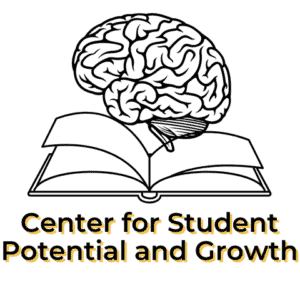
Task initiation is one of the most important skills a student needs, regardless of the school setting. This skill is required for each student to reach predetermined goals, be it academic, extracurricular, or personal.
They cannot achieve any goal set before them without initiating tasks, assignments, or projects.
Consider the following scenario:
You’ve given your class direction on beginning their assignment, and you watch as students shuffle around to get out their workbooks and writing utensils.
After several minutes, you see that most of your class quietly emerged in their assignment. You walk around to ensure students are on track before returning to your desk.
But along the way, you pass Sarah. Like usual, she is still digging around, rummaging through the crumpled-up papers strewn about inside her desk.
You ask her why she has not gotten started, and she tells you that she is looking for her favorite pencil so that she can begin her assignment.
You see that she has several sharpened pencils inside her desk, and you tell her to pick one of them and get going on the assignment because she is already behind.
Sarah begrudgingly picks out one because she knows that you will not leave her side until she does. You continue to your desk, periodically glancing around the room, making a special effort to check in on Sarah.
Sarah is now staring off with her pencil, claiming she is “thinking of something to write.”
In a class of roughly 25-30 children, a small handful of students need that extra push to “get going.”
Like Sarah, these students may hesitate to begin assignments and projects or repeatedly fail to use their time wisely.
The ability to navigate the school environment with levels of independence expected for school-age children demands that they can start most tasks independently.
This article will explore what task initiation skills are, why they are important, and ways to help a student develop them over time.
What are Task Initiation Skills?

Dr. Peg Dawson and Richard Guare define task initiation skills as “the ability to begin projects or activities without procrastinating, in an efficient or timely manner.”
These are our “just do it” skills. If we were to take inventory of all the tasks we are responsible for completing within a day, I am sure that we could find those we enjoy and others we’d instead not do.
Our students are no different! Throughout their school day, students encounter their favorite and least favorite subjects.
We generally expect students to bring the same tenacity to each task, regardless of their thoughts and feelings.
However, the reality is some of our students struggle greatly with getting started.
The following section will cover why students struggle with task initiation.
Why Is Task Initiation Challenging for Some Students?

There are various reasons why getting started is a challenge for some students.
Here are a few I have witnessed in my work with students:
“I don’t know what to do!”
I have observed students in hundreds of classrooms who have said this to teachers and staff in response to being questioned about why they have not begun assignments.
A student may be confused because they did not clearly understand the directions for the assignment. They may also be confused about the first problem or step of the project.
For some students, this initial barrier can cause a mental gridlock and cause a student to immediately shut down when they may understand other parts of the assignment.
For example, a student may hesitate to start if given a multi-step math word problem because the answer lies beyond the initial step.
The first step of a multiplication problem may be challenging by the first step, but she does well with addition and subtraction, and that first step was a roadblock for her continuing the assignment.
“There are too many problems.”
Mental overwhelm is a reality for some students. Students present with variations in learning styles and cognitive capacities, and the sheer amount of work can be too much for some students.
When I work with students for evaluations, I usually tell which student may need me to break up the tasks into smaller sessions.
These students typically start the evaluation process by asking me, “how much do we have to do today?”
In my experience, these students are sizing up the task and maybe unconsciously self-assessing how much mental energy they need for that moment.
Often, students who are more easily overwhelmed by the task in front of them are capable of the work but may have a lower frustration tolerance or threshold for sustained attention.
“It’s easy! I can finish this later.”
Students may delay starting a task because they would rather be doing something else.
It may be overdue assignments for another class or a more preferred activity.
There are instances where students can finish incomplete classwork for homework.
A student who tends to delay starting may opt to “buy time” in the future for current work.
When working with teachers and students, we often see students overestimate their ability to start the assignment vs. delay putting off the task again.
This delay leads to a build-up of work and may further exacerbate procrastination.
While there are various reasons why students delay starting tasks and assignments, the result is that if they persist, procrastination can hinder students’ academic performance.
In the next section, we will discuss the implications of underdeveloped task initiation skills.
Why Are Task Initiation Skills So Important For Students?

Within each class, there are core objectives that teachers expect students to learn to move forward academically.
Students who consistently delay assignments and projects miss out on the learning reinforcement that these tasks often provide.
With a build-up of delayed tasks, students may fail to have the time to work through the material and receive feedback on misunderstood concepts.
Over time, this results in a gap in skills and content knowledge, negatively impacting their ability to work towards mastery of the information.
Helping students overcome the tendency to delay starting can benefit their self-esteem and management of their time and mental energy and help them reach their academic (and personal) goals.
What Are Strategies That Help Students Initiate Tasks?

There are a variety of methods that can help students build task initiation skills.
In keeping with the above examples, let’s review a few strategies teachers can use with their students who need an extra push.
Provide verbal and visual examples of problems that the students are assigned.
In the math problem example, the student did not understand how to complete all the steps. She was able to work through a portion of the problem but still needed support.
If this student has ongoing challenges with not getting started due to limited understanding, she may benefit from a brief conference in a small group or at her desk to work through a sample problem.
If she is weak with her multiplication facts, providing her with a fact sheet and demonstrating how to use it as she works through the problem may be helpful.
Additionally, she may benefit from a visual step-wise outline of the problem that she can use at her desk.
The idea is to reduce as many barriers for this student so that she produces work on which she can receive feedback. If the student does not attempt the problem, she can not receive remediation (if needed).
This strategy can be used with multiple students and can also be used to help set personal goals for students who have a difficult time navigating numerous steps.
Break down more significant assignments into smaller chunks.
Students continually overwhelmed with the amount of work to be completed within a specified time may need to have their work spaced out.
You may need to run a few trials to break down the assignments into sizeable chunks.
Does this student do better with completing work in the morning?
Afternoon?
Does he get overwhelmed more often with a particular subject?
Is the way work is presented overwhelming?
You may find that having too many math problems on the page sets a student off. Or they can read several more pages of a novel if they can sit away from distractions.
Another student may need a mental break after 20-25 minutes of working.
The threshold for students can vary because the limiting factor varies.
It is also helpful to clearly define how much work students should have completed within a specified period and stick to it!
It is essential to hold to the expectation and gradually extend based on student progress.
Expecting too much too soon can lead to further problems with students’ mental and cognitive needs not being met.
Use the Premack Principle to incentivize getting started.
The Premack Principle, developed by psychologist David Premack, is a reinforcement system that allows students to access a more (or higher) preferred activity once they complete a less desired task.
This system works when you have witnessed that the student demonstrates the necessary skill for the assignment but rather procrastinates in doing it (“It’s easy! I’ll do it later!”).
Ask the student the incentive for which they would like to work. Be observant and determine if there are activities that seem to catch their interest.
Using this strategy to motivate students who tend to put tasks off until later can be gradually adjusted as the student increases the preferred skill.
It may be tempting to stop this cold turkey when you see your student getting started without prompting, but be mindful that the reinforcement may be the glue that holds this behavior together.
Slowly remove the intervention instead of suddenly stopping it so that you maintain trust with your student that you will follow through on your end of the intervention.
When you better understand what is at the root of your student’s hesitation to start tasks, you can choose the right strategy and implement it in your classroom.
